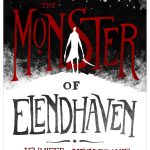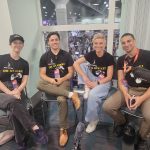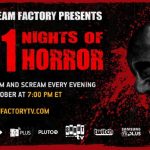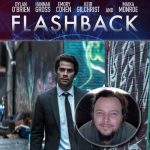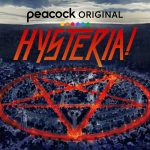“Dark Delicacies” Closing Physical Shop – Interview with Del Howison
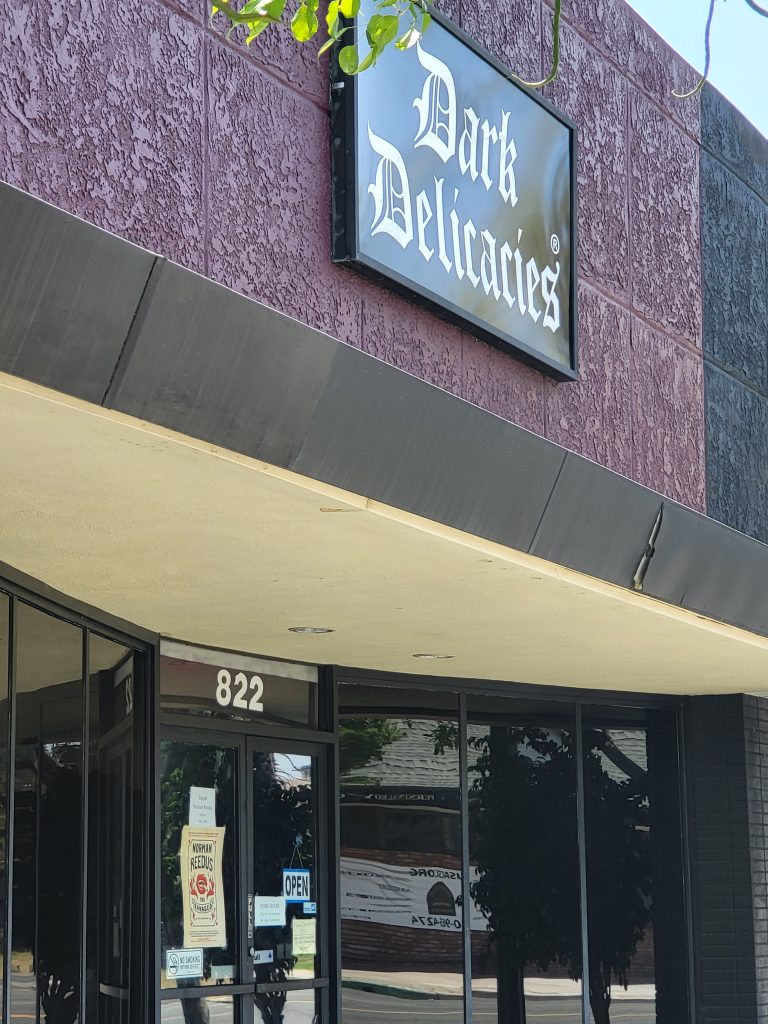
In an unassuming strip mall, there’s a small shop that has darkened windows that hides what type of wares you might find behind the door. A black sign adorns the purple-painted wall, giving the name. Inside is a smallish shop – intimate. One could almost say … unsettling.
Dark Delicacies is a horror-themed bookstore in the Los Angeles area (Burbank, to be specific). Run by Del and Sue Howison, it has survived moves, the entry of online shopping (and the big stores like Amazon and Barnes & Noble), and even COVID. But what it can’t survive is the long arm of time.
On April 5, the store will be voluntarily closing its book and mortar shop after thirty years. The two want to retire (well, Sue wants to retire and Del wants to keep her happy). I sat down with Howison (who is also a writer of horror) and talked about the store, his writing, and what’s ahead for him.
I of course first asked why he decided to open a horror-themed bookstore in LA to begin with. “If we cut through to the basic line,” Howison said, “it’s that old thing about if you can’t find what you want, then create it. There were no horror bookstores. There were bookstores with sections of horror in it: they’d have sci-fi, and then a little horror and a big fantasy. And we were into horror, so we thought maybe there are other idiots that feel the same way we do.”
Of course, there’s a lot of crossover between horror and science fiction and fantasy. I asked him where he drew the line between the two. “You’re right about the blurred lines,” he said. “I think part of the secret is to be more inclusive than exclusive. So even, even when you look at the lines age-wise, I’ll take kids’ books as well as slasher films. I’ll put it all in, [we’re] all-inclusive. And I think that just makes for a bookstore that people think won’t have the variety but does.”
Along the same lines, there typically are sub-genres in the horror field. Movie-wise, there’s torture p*rn, slasher, comedy horror, found footage, etc. Literature-wise, there’s Gothic, supernatural, and dark fantasy – to name a few. Does he have a favorite sub-genre, or is that like choosing a favorite child?
“No,” Howison said quickly, “and I think they unnecessarily break things into categories. I mean, here you’re writing maybe a horror novel, but the stores may be averse to carrying your publication, so they suddenly call it dark fantasy or something. And I think the whole classification thing is just kind of silly, you know? It’s horror, it’s a western, it’s a romance: but you don’t need to go foreign romance, romance with an island, romantic. It’s just crazy. In being more inclusive, I would end up with a million sub-genres if I wanted to.”
With the idea of being more inclusive than exclusive in his store, I then asked him how he defines horror. “Well, first off, something about it has to be the predominant ride in what you’re reading or seeing, because there’s a lot of horrific things that happen in a story. Maybe that doesn’t make it a horror story any more than two people making out turns the entire story into a romance. So, it has to do that even in a kid’s book, like, it’s about a little ghost. For me, the interesting thing, as I’ve gotten older, I’ve changed my … not necessarily my definitions, but what I look for. I am not necessarily a fan of slasher stuff, although back in the day, we were all part of that fan club. You know, that splatterpunk stuff that has now evolved: even those writers certainly have evolved. But I’m so tired of a woman being held captive in a basement, I could throw up.”
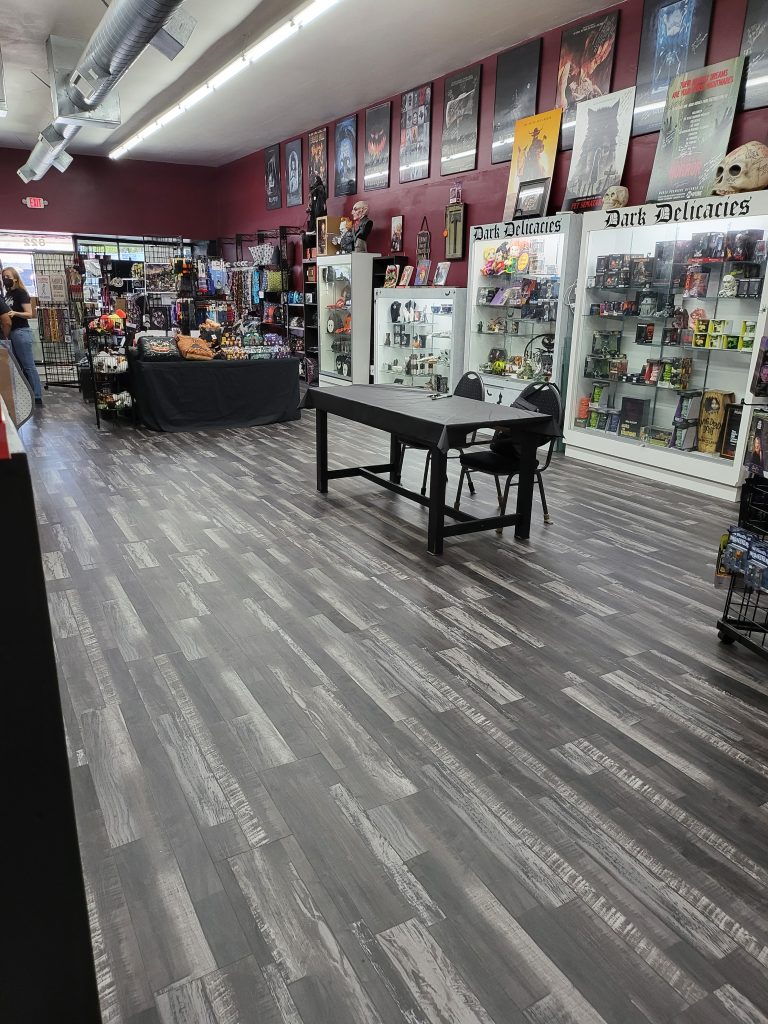
With the bookstore being around for thirty years, I asked if there were changes in the genre or if it was ‘the more things change, the more they stay the same’.
“I think the more things change, the more they stay the same,” Howison said. “But I think the small particulars underneath it… For instance, horror is a great harbinger and even a follow-through on current events. You can really make statements about it, and that has not changed since Poe, since Lovecraft. When the AIDS problem first came out, it was about the blood. And that’s when the big rise of the vampire story came back—until it finally ended by some people deciding that vampires twinkled,” he said with a chuckle. “And we were kind of sick and tired of that whole thing. And then the 911 thing happened, and we had live television of these people covered in this white dust, walking out of the clouds, and suddenly zombies were a big thing for the next ten years. [It] kind of is easing off because of the overload of The Walking Deads and The Walking Dead’s Next Door Neighbor and The Walking Dead’s Best Friend.” (Side note: I would watch that show.) “So it gradually changes, and whatever the current event is that seems to be what horror likes to tackle. I mean, think of the giant mutant, radioactive monsters at the end of the 50s. It’s all part of that same thing. So that has never changed. But what the individual thing is that horror is following at the moment has changed.”
Del met his wife Sue at a bar and were both horror fans. “We opened the store with $5,000 my mother had left me,” Howison said. “And then a year later, we got married. So, we were not married when we opened. We were business partners first.”
Howison is not originally from Los Angeles. (He moved to LA when he was around forty.) I asked him if living in Los Angeles was better or worse for the store, since there were Hollywood writers, directors, and actors that he could reach out to and connect. “Well, I don’t think you could do this in Des Moines,” Howison said with a laugh. ” There’s a couple of places you could do this, but you need a place where the artists and the creators tend to migrate to. And of course, they’re out here making deals and working with each other and doing that sort of thing: the composers, the artists, the writers.”
The store has had a wide range of famous authors, directors, and actors appear for signings (writer Cory Doctorow, actress Juliet Landau, and illustrator Gris Grimly just to name a few), and having covered geek media for over ten years myself, I know you sometimes become a little detached from the idea of celebrity. But there are still times when it dawns on me. So I asked if he had ever gotten star-struck. “I think we all have our person,” Howison said. “I think there is somebody that does it for everybody, and there’s no tangible reason why. It just happens to hit the right notes in you. One of our favorites was Ernest Borgnine, because I knew him forever on my black and white TV that my dad sat and watched. So, when we got to do that, that was kind of star-struck.”
He continued, “There’s been a few along the way that do it in general. Not because you’re Mr. Cool or anything, but like you’re always doing this. You’re having a conversation, and eventually something clicks in your head that says, ‘Oh, they’re regular people, they get sick, they get well, they have a sense of humor, they don’t have a sense of humor.’ And you get over that hump, and yet, you might be doing this for ten years. Somebody walks in and you go, ‘Oh my God, that person’s here.’ It happened to me the other night. I was at a thing called The Masters of Horror meeting, and they hadn’t had one for six years, so it was a huge gathering. And at that meeting was Peter Medak. Medic directed The Changeling, which happened to be one of those top movies for me, and it was subtle. It was a ghost story. It was a haunted house story, and to meet this man was amazing to me.”
The queer community has long connected and identified with the horror genre. I asked him why he thought that was. “Well, I’ve seen extensive growth in that area,” Howison said. “That’s the good thing about it all. In fact, yesterday, in the store, we did a signing for There’s a Zombie Outside, which was, I think, 100% queer production film. But both sides of that equation, meaning lesbian or gay, they are putting out anthologies. They are putting out novels. It’s just all kinds of things. Sometimes you know it, sometimes you don’t know it. And that’s fine too, because you don’t necessarily have to know about a person’s background. But you could do a huge section only on gay horror, if you wanted to. And I think that’s a giant leap forward.”
But in his opinion, why is it the horror genre that speaks to the community? “Well, for a lot of them, depending upon their age, they have been fighting the good fight for a long time,” Howison said. “And I think that feeling of having to internalize a lot of stuff a lot of the time, having to hide a lot of stuff a lot of the time, whether it was from family or the world out there. I mean, I’m not directly involved with it, except through the business and stuff, I am sure that there are still areas where they’re out there fighting just to come out to their family, let alone have a place in the world. At the same time, they want to get those messages out and have fun and do horror and do whatever they’re into without preaching yet, getting the message out. And I think that’s a very tough thing.”
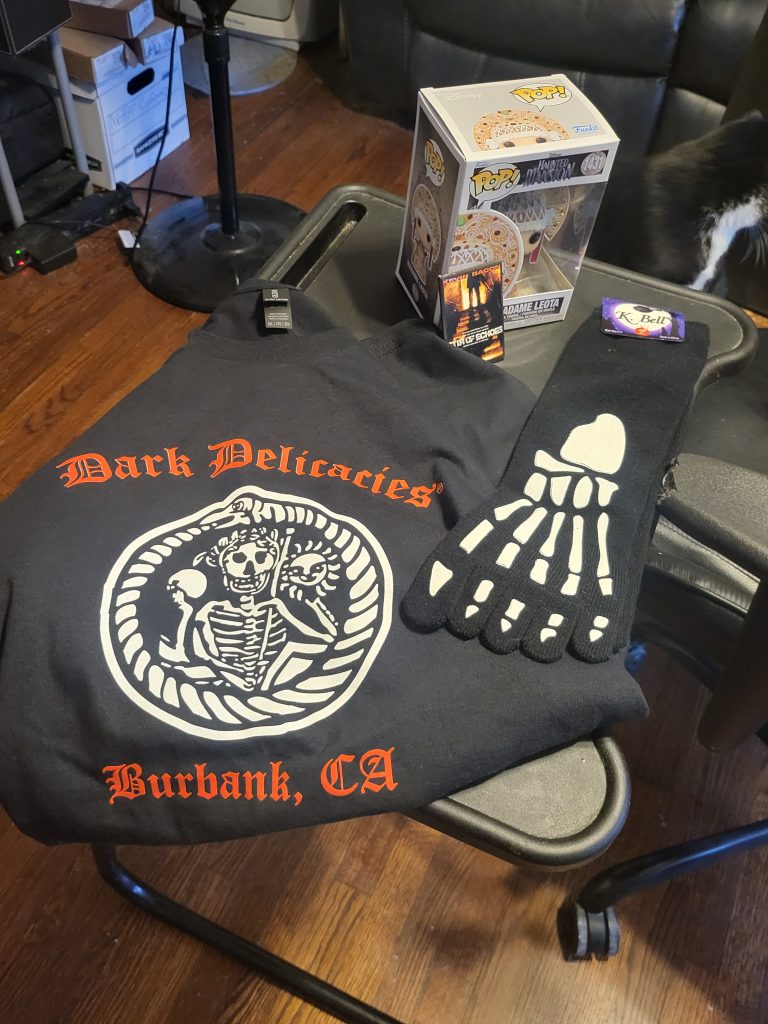
As I mentioned near the beginning, Howison himself has written some horror, but it wasn’t right away. “I started as a journalist, way, way, way back,” he said. “The first things I got was some short stories, which I highly recommend as a way for any writer to start, because it’ll give you some resume material. It is easier to get published in somebody else’s compilation. And also, if you are going the route of an agent, it is easier, I think, to get an agent when you have some of that stuff under your belt. So I started with the Hot Blood series. I had a story in that Jeff Gelb was the editor on, and he ended up doing a signing at the store for the Hot Blood edition that I was in. And during that time, I asked him if he would be interested in co-editing an anthology for me based on the store called Dark Delicacies. It turned into three books, all published by different mainstream publishers. That would never have happened on my own. I could not have done that, and I couldn’t have edited the books without a little direction. So in in that way, he was a mentor to me, teaching me how to become an editor and such.”
I then turned the conversation to the closing of the physical store. Having lasted for thirty years, I asked Howison why he thought it was able to survive for so long. “Because we’re f*king stubborn,” he said with a laugh. “I think it’s different in each instance. In the Barnes and Noble / Borders kind of thing, if we had been a general independent little bookstore, I think we would have been out of business a long time ago because they’re a general bookstore. “But being genre specific and being able to focus on that stuff and have that knowledge base and learn more every day as we went along, they weren’t able to do that as a big corporation. And I think there is something real important about thinking you’re dealing with someone, even if we’re faking it, that we know some information you don’t know or can locate the information that you need. I think that’s very important. I think that’s part of the reason that the store became a clubhouse more than a store. It felt personal to the people who signed and it felt personal to the people who were fans. And I think it became a very … I don’t want to keep using the word personal, but a very personal thing that they held on to and claimed as their own.”
He continued, “Then we fought the Amazon fight, and it’s the same kind of deal. We could fight against them with one added thing, and that is that when I go into a bookstore, sometimes I’m over here browsing this book, I want to get this book, and I look to my left and I go, ‘Oh, that looks interesting. Let me see what that is.’ You can’t do that on Amazon. You need to know a subject matter or a writer or a book title or something, you can’t really just accidentally have wonderful discoveries. And I love that in the bookstore I feel like.
“And then in COVID, the city of Burbank wouldn’t let us even do curb dealing. And so we had to become innovative. I fell back on my old days of meeting people in an alley and giving them the package. They didn’t say anything about no alley sales. So we would have people call us up or send us an email or whatever. We would charge their card. They would give me all the information on the phone. I’d ring them up, and I’d say, meet me out the back door of the building in an hour. And there it is. They would come. I give them their bag. It was like a drive-through. We’re in Burbank, so the surrounding cities are like Glendale and North Hollywood and whatever. And I set up once a day we would do free delivery: you order the day before, and Sue would package everything up. We -put it in the car, and I’d spend the morning going around and delivering the people’s goods to their house. Innovation, you know, you have to turn and weave and bob, and that takes you all the way back to the gay-lit thing. That’s what they’ve had to do for, you know, for decades.”
A few years ago, Howison considered selling the bookstore. (I never wished to have a spare $50,000 harder, I think.) I asked him what changed his mind. “Actually, my wife decided not to,” he said. “Sue said, the most important thing of a small business especially is the mailing list. And our mailing list consists of a lot of addresses and stuff that we promised them a long time ago would never be given away. Except for some odds and ends, like we deal with local artisans and have things made especially for us, there is nothing in the store that you really couldn’t go to your wholesaler and repopulate the store. The point of the store was gathering it all in one spot so they could do that. They don’t need to buy the store, and they won’t get the mailing list. So, just about five months ago, I renewed the trademark with the government for another ten years, and we’ll be doing things like conventions, and we’ll be doing special events, we still will maintain our website, and maybe a pop up here and there. We’ll see.”
Howison has a new book he just released, What Fresh Hell is This?, and is an anthology of short stories he’s published in other places. He’s hoping with the physical store closed, not only can he travel with his wife, but he can focus more on his writing. He also has a SAG card and has made the occasional cameo in horror films and hopes to continue doing that. “I haven’t been able to go to a ton of auditions from behind the checkout counter at the store. So that and the writing together, that’s going to be the new adventure for me.”
If you live in the Los Angeles area, you only have a few more days to visit the physical shop. But either way, be sure to check out the bookstore online.
Author: Angie Fiedler Sutton
Angie Fiedler Sutton is a writer, podcaster, and all-round fangirl geek. She has been published in Den of Geek, Stage Directions, LA Weekly, The Mary Sue, and others.
She also produces her own podcast, Contents May Vary, where she interviews geeky people about geeky things. You can see all her work (and social media channels) at angiefsutton.com.
Help support independent journalism. Subscribe to our Patreon.
Copyright © The Geekiary
Do not copy our content in whole to other websites. If you are reading this anywhere besides TheGeekiary.com, it has been stolen.Read our

